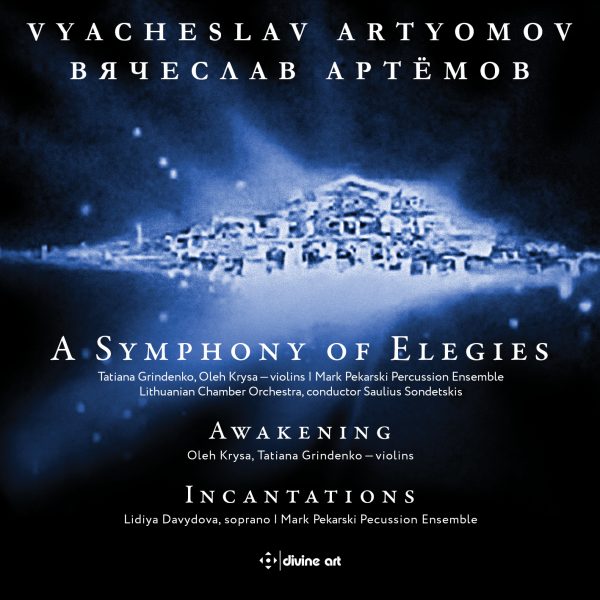American Record Guide
Vyacheslav Artyomov is a member of the generation of experimental Russian composers that came to prominence in the 1970s. Members of this group, which included Sofia Gubaidulina, Alexander Knaifel, and Edison Denisov, were blacklisted by Tikhon Khrennikov in 1979. Like Knaifel and especially Gubaidulina, Artyomov is a composer of mostly religious (but not liturgical) music. All three composers use their experimental techniques to express the mystical unknowable qualities of divinity, while also capturing grounded, emotional spirituality. Artyomov’s religious style is intense, yet on a broad, slowly shifting scale—not unlike Bruckner. His music reminds me of Messaien, with his considerable attention to texture and color.
This is most apparent in the album’s centerpiece, Symphony of Elegies for two violins, percussion, and strings. Written spontaneously during a trip to Armenia, the work is influenced by Christian and Zen mysticism. I is one of the most stunning sections of music I have heard in recent memory. The solo violins play in their uppermost registers, encircled by a dense, shifting mass of strings, before separating from the orchestra. This spatial movement evokes the perception of a divine entity, moving from the earth to observe from above. The mountains of Armenia had a profound effect on the composer.
The two solo violins return for the duo ‘Awakening’, another piece that explores changing perceptions thru changing texture and register.
The colorful Incantations for soprano and percussion quartet is another type of mysticism entirely. Varese and Berio are clear influences here. The soprano sometimes mingles with the layers of the ensemble with percussive, non-vocal sounds. Otherwise, she sings fragmented text distilled to the barest of phonetics, fraught with quarter-tones and glissandos. It is striking piece, seemingly out of time and space. I highly recommend this album, but as with Knaife’s music, some may find it to be an acquired taste.
@divineartrecordingsgroup
A First Inversion Company
Registered Office:
176-178 Pontefract Road, Cudworth, Barnsley S72 8BE
+44 1226 596703
Fort Worth, TX 76110
+1.682.233.4978












